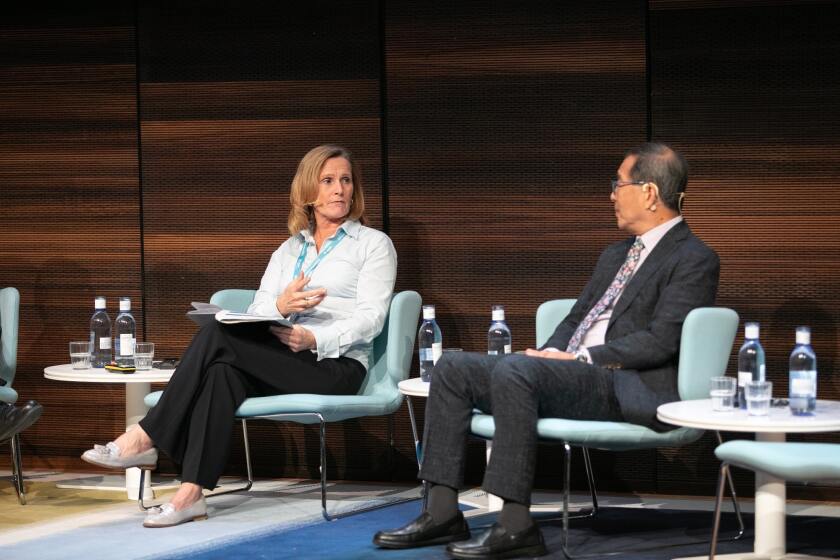On day two of the EUIPO’s IP Mediation Conference, which was held at the EUIPO's headquarters in Alicante today, panellists discussed best practices to follow while navigating alternative dispute resolution proceedings.
Tips and traps
In the day's opening session, speakers debated tips and traps for parties involved in mediation.
Amrik Kandola, a mediator at the Centre for Effective Dispute Resolution (CEDR) in the UK, said parties could score early points by engaging with the mediator at the start of proceedings.
Monika Rhein, presiding judge at the Regional Court of Munich, suggested that lawyers can impress mediators by putting a lot of work into their opening statement.
She emphasised, though, that a mediator must spend time making parties feel comfortable.
“Mediators must not rush to conclude proceedings. I’ve done that in the past and that did not work out well,” she said.
Marie-Aude Ziadé, partner at Gowling WLG in France, on the other hand, talked about the traps that lawyers and mediators should avoid falling into.
She said lawyers must not treat mediation like litigation as it is an entirely different process.
“Mediators, on the other hand, must ensure that a lawyer has the necessary authority from their client to enter into a settlement,” she added.
Elena Koltsaki, affiliate professor of negotiations and mediation management at the American College of Greece in Athens, said a good mediator isn’t afraid of surprises.
Kandola at CEDR delved into parties’ responsibilities.
He said parties in mediation must appreciate that they have an opportunity to have a conversation with the other side that’s different from the one that they have been having so far.
“The best opening sessions are where I have to do absolutely nothing because the parties are talking,” he told delegates.
He noted that mediators must create an environment where parties can have an open conversation and explore the issues.
However, he added that it’s up to a mediator to figure out what’s stopping a conversation.
“I’ve not yet come across a mediation where emotions aren’t involved. It’s all about knocking those emotional triggers,” he added.
Consider ethics
In another session, panellists delved into the importance of ethics in mediation.
Omer Shapira, associate professor of law at Ono Academic College in Israel, said ethical considerations depend on factual situations, such as whether parties are properly represented.
However, he stressed that mediators must act impartially, understand their ethical obligations and "be worthy of parties’ trust”.
Culture conversations
Later in the day, another panel covered tips on navigating potential cultural minefields.
Judith Kelbie, director of the London School of Mediation, said it was crucial not to read into stereotypes when dealing with negotiations between parties from different cultures.
She also suggested that a mediator must actively engage with the parties to understand what works for them so that the mediation process can be designed according to what they want.
She recommended understanding what behaviour has been problematic by a party from a particular culture in the past to understand what is and is not appropriate.
George Lim, chairman of the Singapore International Mediation Centre, said understanding the interests of the different parties involved can help everyone reach the right outcome quickly.
For example, he noted parties from Asian countries may require a mediator to spend some time building trust, while American parties may prefer to have a more direct conversation.
Tech supremacy
The day ended with conversations around the use of new technology, such as artificial intelligence, in dispute resolution.
Joe Al-Khayat, co-founder of ADR software company Resolve Disputes Online in Australia, said his experience of conducting mediation over Skype opened him to the possibility of using technology to resolve disputes.
He added that technology would play an important role in reducing backlogs and that “dispute resolution will be much faster” in the coming years.
Al-Khayat noted that courts in several countries already use technology to facilitate dispute resolution.
For instance, some courts in China use tech platforms to automatically deduct damages or costs from the losing party’s account once a case has been decided.
Al-Khayat and John Zeleznikow, a professor at La Trobe University in Australia, agreed that people don’t care whether a decision was reached with the help of a tool so long as they got the outcome they wanted.
Zeleznikow said COVID opened the legal community’s eyes to how technology can make lives easier and highlighted that judges now even have tools that can write decisions for them.
“It doesn’t change the system but gives us an idea about what’s possible in the future,” he added.
The EUIPO Mediation Conference ends today, October 20.











